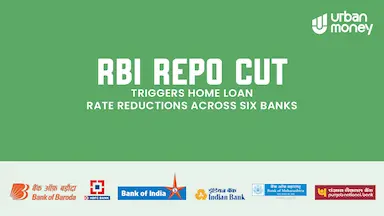3 Crore Home Loan EMI & Interest Rate
A 3 Crore home loan is tailored for high-value property investments in luxury markets. You can plan your budget with a customised 3 Crore home loan EMI. This 3 Crore housing loan allows you to build or buy your dream villa or penthouse. Choose a suitable 3 Crore housing loan EMI option that supports your long-term goals. It’s an excellent choice for high-net-worth individuals looking for elegant, spacious, and well-located properties.
- Personalized Home Loan solutions
- Expert guidance
- Application assistance
- Credit score discussion
- Home Loan Interest rate comparison
3 Crore Home Loan EMI Calculator
- 5 Lac
- 20 Cr
- 5
- 30
- 6
- 20
Monthly Loan EMI
Payment Breakdown:
Principal Amount
₹3,00,00,000
Interest Payable
Total Amount Payable
Table of Content


Last Updated: 3 January 2026
Features and Benefits of 3 Crore Home Loan
Securing a 3 Crore Home Loan comes with a myriad of features and benefits, catering to the unique needs of individuals aiming to purchase high-value properties. Here’s a comprehensive look at what makes these substantial home loans stand out in the financial landscape.
- Substantial Loan Amount: A 3 Crore Home Loan enables the purchase of expansive properties with luxury amenities in prime locations, meeting the needs of homebuyers looking for spacious and premium residences.
- Flexible Repayment Terms: Borrowers can choose from various repayment tenures that suit their financial situations. Longer tenures offer lower monthly payments, while shorter tenures save on total interest paid.
- Competitive Interest Rates: Lenders offer competitive rates on these large loans, making financing more accessible. Borrowers should monitor market rates to optimize their loan timing and terms.
- Customizable EMIs: Borrowers can adjust their monthly payments using online EMI calculators to find a balance that fits their budget, factoring in their preferred loan tenure and interest rates.
- Diverse Loan Options: Financial institutions provide both fixed-rate and floating-rate loans, allowing borrowers to select the option that best fits their risk tolerance and financial strategy.
- Tax Benefits: Homebuyers can benefit from tax deductions on principal and interest payments under the Income Tax Act, potentially enhancing the affordability of the loan.
- Prepayment Advantages: Making extra payments towards the principal can significantly reduce the total interest cost, accelerating the journey to becoming debt-free.
3 Crore Home Loan Eligibility Criteria
Here’s a detailed look at the important elements that determine whether you’re eligible to set out on this significant financial adventure.
- KYC Documents: Proof of identity and residence, such as PAN, Aadhaar, passport, or driving license.
- Income Proof: Latest salary slips, bank statements, and IT returns for salaried individuals; financial statements for self-employed.
- Property Documents: Legal documents related to the property being purchased or constructed, including title deeds and approval plans.
- Additional Documents: Employment contract, ongoing loan repayments, and any other financial commitments.
- Age Criteria: The applicant should be at least 21 years old at the time of loan application and should not exceed 65 years at the time of loan maturity. This ensures that the borrower has the capability to repay the loan during their working years.
Important Tip : Check your eligibilty by using our AI based advanced home loan eligibility calculator.
Factors Affecting 3 Crore Home Loan EMI
Take a closer look at the key elements that can significantly impact the monthly financial commitment associated with a loan of this magnitude.
- Loan Amount: Unsurprisingly, the principal loan amount has a direct correlation with the EMI. In the case of a 3 crore Home Loan, the larger the loan, the higher the EMI is likely to be.
- Interest Rate: The interest rate, a critical component of any home loan, can substantially influence the EMI. A higher interest rate translates to a higher EMI, while a lower rate can ease the monthly financial burden.
- Repayment Tenure: The chosen repayment tenure plays a pivotal role in determining the EMI. Opting for a longer tenure may result in a lower EMI, but it also leads to a higher overall interest payout. Conversely, a shorter tenure may increase the EMI but reduce the total interest paid over the life of the loan.
- Interest Type: The type of interest, whether fixed or floating, impacts the EMI. Fixed-rate loans provide stability, with EMIs remaining constant throughout the repayment period. In contrast, floating-rate loans can lead to fluctuations in EMIs based on market interest rate changes.
- Down Payment: The amount paid as a down payment influences the loan amount and, consequently, the EMI. A higher down payment reduces the loan principal, resulting in a more manageable EMI.
- Prepayment and Part-Payment: Opting for prepayment or part-payment facilities can impact the EMI. Making additional payments towards the principal amount reduces the outstanding balance, potentially lowering subsequent EMIs.
- Loan Processing Fees: Although they have no direct impact on the EMI, lenders’ one-time processing fees should be taken into account. These fees can add to the overall cost of the loan and may impact your financial planning.
- Economic Factors: Economic conditions and inflation rates can influence interest rates, subsequently affecting EMIs. Keeping an eye on market trends helps borrowers anticipate potential changes in their financial commitments.
- Credit Score: Lenders base their interest rates on a borrower’s credit score. A higher credit score can result in a lower interest rate, positively impacting the EMI.
- Insurance and Taxes: Including insurance premiums and property taxes in the loan can affect the EMI. While it doesn’t directly impact the principal or interest, it adds to the overall monthly outflow.
Home Loan EMIs Based on Different Budgets
Documents Required for 3 Crore Home Loan
Following is the list of documents that are typically required when applying for a home loan of ₹3 crore. Please note that the exact requirements may vary depending on the lending institution.
- Personal Identification Documents: These are used to verify your identity and residency. They can include:
- PAN Card or Form 60 (if you don’t have a PAN Card)
- Passport
- Aadhaar Card
- Driving License
- Voter’s ID Card
- Job card issued by NREGA
- Letter issued by the National Population Register
- Income-Related Documents: These are used to assess your ability to repay the loan. They can include:
- For salaried individuals: Last 3 months’ salary slips, last 6 months’ bank statements showing salary credits, and the latest Form-16 and IT returns
- For self-employed individuals: Income tax returns, balance sheets, profit and loss statements for the last 2 years, and business entity statements attested by a CA
- Property-Related Documents: These are used to verify the details of the property you’re planning to purchase. They can include:
- Title deeds of the property
- Receipts of initial payments made to the seller
- Copy of the agreement to sell (if already executed)
- Title deeds of the plot
- Proof of no encumbrances on the property
- Copy of the plans, approved by the local authorities
*Remember, it’s always a good idea to check with your bank or lending institution for the most accurate and up-to-date information. They may have additional requirements or specific forms that need to be filled out. Good luck with your home loan application!
Home Loans That Empower Your Dreams
By Professions
By Property
By CIBIL Score
By Salary
By Other
3 Crore Home Loan Processing Fees & Other Charges
When you apply for a home loan, there are several fees and charges that you’ll need to be aware of. Here’s a breakdown of some of the most common ones for a ₹3 Crore home loan:
- Processing Fee: The lender will charge you this one-time fee in order to process your application for a home loan. It’s usually calculated as a percentage of the loan amount. In India, the processing fee generally ranges from 0.50% to 2.00% of the loan amount. For a ₹3 crore loan, this could mean a fee of ₹1.5 lakh to ₹6 lakh. Please note that GST of 18% will also apply.
- Prepayment Charge: This is a fee you have to pay if you decide to pay off your outstanding loan balance before the tenure ends. It usually ranges from 2% to 6% of the outstanding loan amount. However, most lenders do not levy any prepayment charges on floating rate loans.
- Conversion Charges: If you wish to change your floating rate loan to a fixed rate loan, or vice versa, you will have to pay a one-time conversion charge.
- Late Payment Fee: This fee is charged when you fail to make your EMI payment on time. It is usually charged as a certain percentage of the delayed amount every month.
Explore ₹3 Crore Home Loan from Top Banks
3 Crore Home Loan EMI for 5-30 Years
Let’s assume an annual interest rate of 8.4% for the calculations. Here’s the EMI for a ₹3 Crore home loan for various tenures:
| Loan Tenure (Years) | Monthly EMI (₹) |
| 5 | 608,292 |
| 10 | 363,983 |
| 15 | 286,696 |
| 20 | 250,932 |
| 25 | 224,316 |
| 30 | 208,166 |
*Please note that these are approximate values and the actual EMI may vary based on the exact interest rate offered by the bank
Important Key Points to Consider while Taking 3 Crore Home Loan
Securing a 3 crore loan is a significant financial undertaking. Here are some crucial factors to carefully evaluate before proceeding:
- Interest Rates: Opt for the best interest rate available by comparing different banks and financial institutions. A lower rate can significantly reduce your overall repayment amount.
- Loan Tenure: A longer loan tenure reduces your EMI but increases the total interest paid. Find a balance that suits your financial plan.
- Down Payment: Making a larger down payment can reduce the principal amount, thereby reducing the EMI and interest over the loan period.
- Credit Score: A high credit score can help you secure a lower interest rate. Ensure your credit score is in good standing before applying.
- Income Stability: Ensure that your income is stable and sufficient to cover the EMIs along with your other expenses.
Tips to Minimise Your 3 Crore Home Loan EMI
Here a few tips to help you minimise your 3 crore home loan EMI:
- Balance Transfer: Consider transferring your loan to another lender offering a lower interest rate after carefully evaluating the terms and conditions.
- Prepayment: Whenever possible, make partial prepayments to reduce the principal amount, which in turn will reduce your EMI.
- Choose wisely: Opt for floating rates if interest rates are expected to decrease in the future.
- EMI Calculators: Use online home loan EMI calculator to plan and choose the best loan structure for your needs.
Apply Home Loan in Your City
Frequently Asked Questions (FAQs)
How is the EMI amount calculated for a 3 crore Home Loan?
The loan amount, interest rate, and tenure are used to determine the 4 crore loan EMI.
What is the amortisation schedule for a 3 crore Home Loan EMI?
An amortisation schedule is a table detailing each periodic payment on a loan over time. It breaks down each payment into principal and interest components, showing the balance remaining after each payment.
Can I make prepayments towards my 3 Crore home loan to reduce the EMI burden?
Yes, making prepayments can significantly reduce your principal amount, thereby reducing the EMI and total interest payable. However, check if your lender charges any prepayment penalties.
How can I manage my finances to ensure I can comfortably pay my 3 Crore Home loan EMI?
To manage your finances, you should create a budget to manage expenses, build an emergency fund for unexpected financial needs, and invest in options yielding returns above your loan interest rate.
What is the rate of interest for a 3 Crore Home Loan?
The interest rate for a 3 Crore home loan varies between lenders and is influenced by the borrower’s credit score, income, loan tenure, and other factors. Rates generally range from around 6.5% to 9% per annum, but it’s essential to check current rates.
What should be the minimum salary to get a 3 Crore Home Loan?
The minimum salary requirement can vary widely between lenders and is based on the loan amount, tenure, interest rate, and the applicant’s debt-to-income ratio. A rough estimate might require a monthly income of at least ₹3 – 4 lakhs, but this can vary significantly based on the factors mentioned above.
Quick Links
Home Loan by Nationalized Bank
Home Loan by Private Bank
- Reliance Capital Home Loan
- YES Bank Home Loan
- RBL Bank Home Loan
- IDFC FIRST Bank Home Loan
- Deutsche Bank Home Loan
- DCB Bank Home Loan
- Federal Bank Home Loan
- ICICI Bank Home Loan
- karur Vysya Bank Home Loan
- CITI Bank Home Loan
- HDFC Bank Home Loan
- Housing Development Finance Corporation Home Loan
- HDFC Sales Home Loan
- Kotak Bank Home Loan
- HSBC Home Loan
- IDBI Bank Home Loan
- IndusInd Bank Home Loan
- LIC Housing Finance Home Loan
- Axis Bank Home Loan
- karnataka bank Home Loan
Home Loan by NBFC
- Clix Capital Home Loan
- Vastu Housing Finance Home Loan
- Aadhar housing Finance Home Loan
- Hero FinCorp Home Loan
- Muthoot Finance Ltd Home Loan
- Ujjivan Small Finance Bank Home Loan
- Edelweiss Financial Services Home Loan
- Cholamandalam Finance Home Loan
- SMFG India Credit Company Ltd Home Loan
- Capri Global Home Loan
- Hero Housing Finance Home Loan
- Poonawalla Fincorp Limited Home Loan
- Piramal Finance Home Loan
- Capital First Ltd. Home Loan
- IndiaBulls Home Loan
- IIFL Finance Home Loan
- L&T Finance Home Loan
- DHFL Home Loan
- Tata Capital Housing Finance Limited Home Loan
- Aditya Birla Finance Limited Home Loan
- Punjab National Bank Housing Finance Home Loan
- Home First Finance Company Home Loan
- Godrej Housing Finance Home Loan
- Bajaj Finserv Home Loan
Latest from the Home Loan Blog
Get in-depth knowledge about all things related to Home Loan and your finances

Home Loan Interest Rates Cut 2025: RBI Repo Move Triggers Big Rate Reductions Across 6 Major Banks
Following the RBI’s 5 December repo rate cut to 5.25%, six major banks have begun trimming home loan benchmarks, so borrowers may soon see lower interest rates on floating-rate loans and lighter EMIs on existing home loa

Top 5 Legal Documents You Need for a Hassle-Free Home Loan Process
Getting a home loan can be smooth if you have all the right documents. Lenders need certain legal documents for a home loan to verify your identity, income, and property details. Having these ready in advance can speed u

Home Loan Exemptions : Tax Rebates, High Savings
A home loan can not only get you your dream home —it can also help you save on taxes! Home loan exemptions offered by the Income Tax Act (1961) allow borrowers to claim rebates that lower their taxable income. These exem

Home Loan Disbursement Process For Under Construction Property
Investing in under-construction properties offers affordability and long-term benefits. It is a popular choice among homebuyers. These properties provide flexible payment plans and potential appreciation in value over ti

Understanding Principal and Interest – An Introduction
Money makes the world go round, but borrowing it can sometimes feel like a puzzle. When you take a loan, you hear words like “principal” and “interest” tossed around, but what do they actually mean? Think of it this way:
